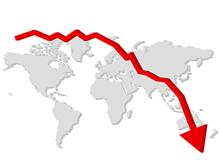
As studies by a number of British and American experts on interstate conflict have shown, the strategies of indirect action and soft power are special technologies for waging geopolitical struggle to gain dominance over an “enemy” state by taking complete, all-encompassing and covert control of the formation and practical implementation of a country’s domestic and foreign policy, its political-administrative, socioeconomic, defense, cultural, ideological and other key spheres, and its very processes for future development by employing “indirect” organizational actions specially developed for that purpose and measures of a manipulative and disruptive nature. In so doing, the aggressor applies pressure to the victim country both in the absence of a direct confrontation while officially maintaining “friendly” or even partnership relations with it and during conditions of open conflict, including war. An aggressor’s main efforts during a geopolitical conflict are concentrated on gaining control of the target country’s government by developing “agents of influence” among its ruling elite and security services.
The technology for crushing “enemy” states by means of indirect action and soft power is built upon the following basic ideas and concepts:
– The use of both open and covert forms and methods without an open confrontation or a direct military clash to disrupt the enemy’s foundations of statehood;
– The aggressor achieves dominance over the target country by depriving it of economic and resource self-sufficiency and the capability for stable development. This is accomplished by developing in the victim country’s state system a special organizational mechanism for “external governance” to enable covert control by proxy over the vital functions of the country under attack and the ability to transform its sociopolitical system to satisfy the interests and goals of foreign participants in global politics. That results both in the physical destruction of the victim country’s statehood, which leads to the economic and political seizure of its territory and resources, and to the destruction of its indigenous civilization, i.e., to a change in the civilizational, religio-cultural and national identity of its people. I should stress that victory in a geopolitical conflict as distinct from victory in war is irreversible, because the victim disappears from the historical stage.
It is also worthwhile noting that the countries of the West did not pioneer the use of indirect action and soft power strategies. The principles of indirect action were first formulated in China during the 5th century BCE by the military leader and theoretician Sun Tzu, who set forth the principles for achieving victory in his Art of War. His strategy essentially involves subduing an enemy without fighting, which means achieving victory through ideas.
A comparison of the American and Chinese indirect action strategies shows that they differ significantly in terms of concept. The American model is focused on rapid disruption of the victim country’s state system by creating systemic crisis phenomena within it and forming points of bifurcation within its state system that exacerbate crisis processes. Whereas the “American scenario” for the practical use of the indirect action strategy assumes that active operations will be executed, the Chinese strategy is to facilitate the desired change in the geopolitical power of states in a way that benefits China through the victim country’s “natural” deterioration. This enables the attacking country to wait until its enemy is sufficiently weak and conditions arise that may negate the need for military action to seize territory. Then, the role of the armed forces would be reduced to the use of a heavy hand to strengthen the existing economic and demographic situation in a particular region.
Vladimir Karyakin, Cand. Sc. (Military), is a Senior Fellow in the Department of Defense Policy of the Russian Institute for Strategic Studies. Exclusively for New Eastern Outlook.
